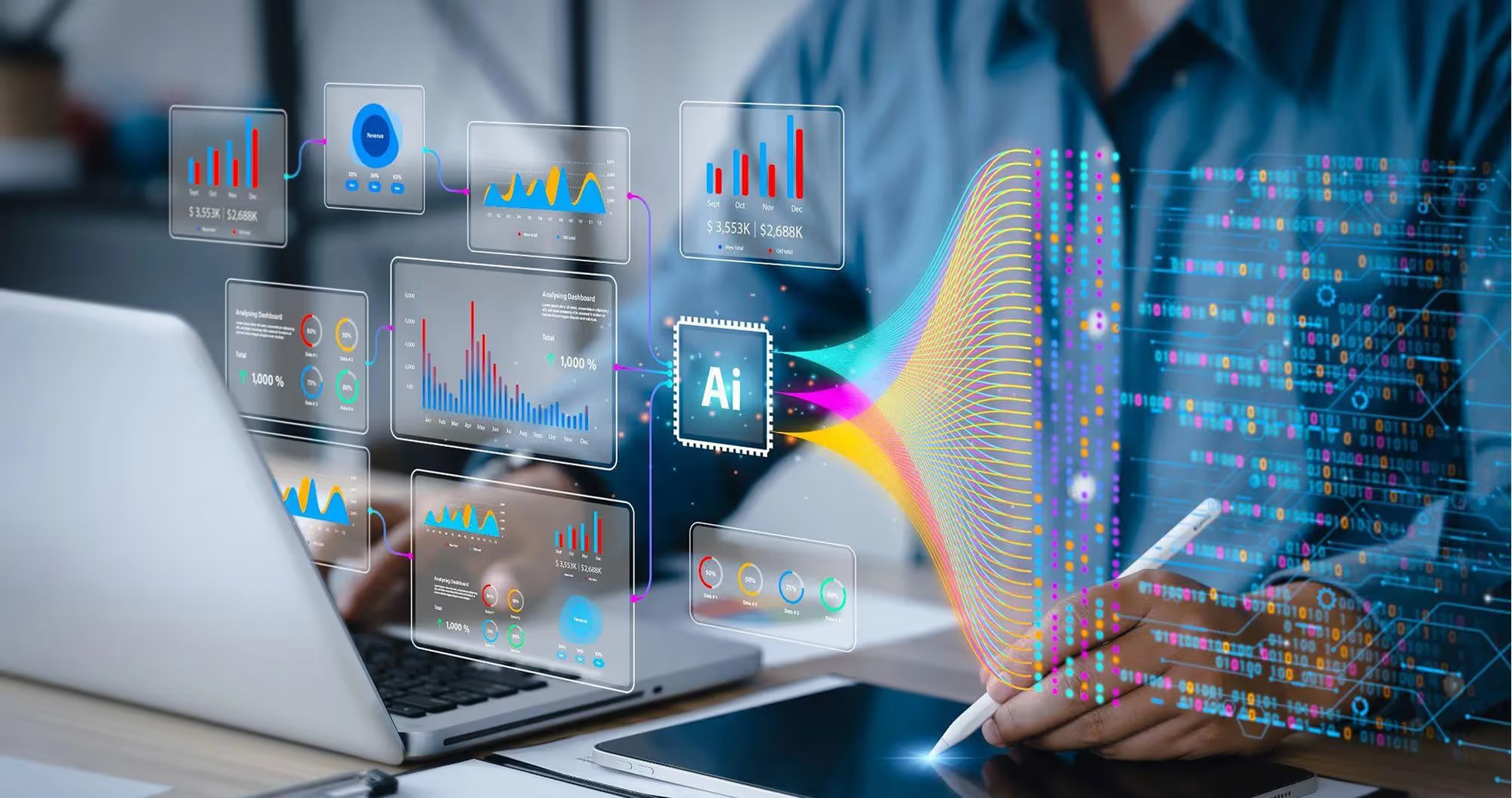As businesses adapt to rapid digital transformation, AI has become indispensable for streamlining B2B operations. From automating repetitive tasks to predicting customer demand, AI is helping businesses operate with greater precision and flexibility. This transformation is not only about improved efficiency; it's about empowering B2B companies to make smarter decisions, drive growth, and better serve their clients. Here, we explore how AI is reshaping key areas in B2B, creating a foundation for a more agile, efficient future.
1. Automating repetitive tasks
In B2B, manual tasks like order processing, invoicing, and data entry have traditionally consumed vast amounts of time and resources. AI-driven automation is transforming these processes, allowing teams to shift their focus from routine tasks to strategic initiatives. By automating workflows, companies can minimize human error and boost efficiency.
- Increased Productivity : Automation accelerates time-consuming tasks, freeing employees to focus on high-impact projects.
- Enhanced Consistency : Reducing human involvement in routine tasks results in more accurate, predictable outcomes.
Across sectors, automation is driving time savings and fostering productivity, reinforcing the role of AI as a force multiplier in B2B.
2. Improving demand forecasting
In a market where demand volatility can strain resources, AI's ability to analyze vast datasets and predict trends is invaluable. With advanced forecasting, B2B companies can optimize inventory, reduce waste, and better align production with real-time market needs.
- Optimized Inventory Management : Precise forecasts minimize the risk of overstocking or stockouts, enhancing resource allocation.
- Reduced Costs : By anticipating demand shifts, businesses can avoid unnecessary holding costs and streamline operations.
Accurate forecasting is helping companies align their strategies with customer demand, ensuring the right resources are in place when needed.
3. Enhancing customer support with AI-powered chatbots
Customer support has evolved into a critical element of the B2B experience, as clients expect fast, reliable assistance. AI-powered chatbots are transforming customer service by handling routine inquiries and providing real-time support. For B2B companies, this means higher customer satisfaction and a more agile support structure.
- 24/7 Availability : AI chatbots offer around-the-clock assistance, responding instantly to client queries.
- Personalized Interactions : AI-driven insights enable chatbots to deliver relevant answers based on user history, creating a more tailored experience.
With chatbots managing common queries, companies can ensure clients receive efficient support, allowing human agents to focus on complex issues.
4. Optimizing supply chain and logistics
In B2B, where supply chains are often complex, AI is proving essential for enhancing logistics. AI tools can predict disruptions, identify optimal routes, and recommend alternative suppliers, allowing businesses to minimize risk and improve delivery reliability.
- Predictive Maintenance : By monitoring equipment performance, AI can anticipate maintenance needs, reducing unexpected downtime.
- Efficient Routing : Algorithms analyze variables like traffic and weather to determine the best logistics routes, reducing shipping delays.
AI-powered logistics solutions streamline supply chain management, ensuring that goods reach customers faster and with fewer interruptions.
5. Personalizing Marketing and Sales Strategies
AI’s data-driven capabilities are enabling B2B companies to offer more personalized marketing and sales approaches. By analyzing customer behavior and preferences, AI helps businesses tailor their strategies to meet specific client needs.
- Precision in Lead Scoring : AI algorithms rank leads by their likelihood to convert, allowing sales teams to target the highest-value prospects.
- Customized Campaigns : Personalization boosts campaign effectiveness by tailoring messaging to resonate with individual clients.
This personalized approach strengthens client relationships and drives engagement, making it easier for B2B companies to build trust and drive loyalty.
AI is redefining efficiency in B2B operations, enabling businesses to operate with greater agility and insight. Through automation, improved demand forecasting, responsive customer support, and optimized logistics, AI offers B2B companies the tools to stay competitive and foster sustainable growth. As AI technologies continue to evolve, they will undoubtedly play an even greater role in shaping the future of B2B, streamlining processes and delivering the adaptability needed in a dynamic market. Ready to transform your B2B operations with AI? Ask for a demo of Volta today and discover how our solutions can help streamline your processes and drive greater efficiency.















